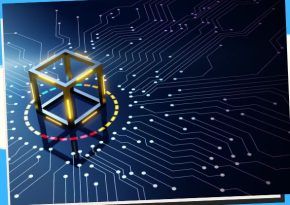
The Power of Trust: Blockchain’s Role in Fair Voting Systems! 

Explore the power of trust in fair voting systems, as blockchain strengthens democracy and ensures every voice is heard.
The Ballot Box of Tomorrow: Blockchain for Transparent Voting Systems 


Voting, the cornerstone of democracy, is a process that has remained relatively unchanged for centuries. However, as technology continues to evolve, the need for secure, transparent, and accessible voting systems has become increasingly vital. Blockchain technology, with its inherent properties of security and transparency, has emerged as a potential solution to revolutionize the way we cast and count our votes. In this article, we’ll embark on an exciting journey to explore the fascinating realm of blockchain’s application in transparent voting systems, its benefits, real-world use cases, challenges, and the potential it holds for the future of democracy.

Before we dive into the solutions that blockchain offers, let’s understand the challenges faced by traditional voting systems:
**1. *Security Concerns*: Traditional voting systems are vulnerable to hacking, tampering, and fraud, which can undermine the integrity of elections.
**2. *Lack of Transparency*: The lack of transparency in the vote-counting process can lead to suspicions of election rigging and mistrust among voters.
**3. *Accessibility Issues*: Many citizens, including those living abroad, face difficulties accessing traditional polling stations.
**4. *Manual Processes*: Counting and verifying paper ballots can be slow, error-prone, and costly.
**5. *Identity Verification*: Ensuring the identity of voters without infringing on their privacy is a complex challenge.

Blockchain technology has the potential to address the challenges faced by traditional voting systems. Here’s how it works:
**1. *Immutable Records*: Blockchain records are permanent and cannot be altered, ensuring the integrity of the voting process.
**2. *Transparency*: Blockchain transactions are transparent and can be accessed by authorized parties, offering a clear and verifiable history of votes.
**3. *Decentralization*: Blockchain operates on a decentralized network, reducing the influence of centralized authorities and intermediaries.
**4. *Security*: Blockchain’s cryptographic security measures protect votes from unauthorized access and manipulation.
**5. *Smart Contracts*: Smart contracts can automate the voting process, ensuring votes are counted accurately and transparently.

Blockchain’s impact on voting systems extends to various domains:
**1. *Remote Voting*: Blockchain enables remote voting, allowing citizens to cast their votes securely from anywhere in the world.
**2. *Voter Identity Verification*: Blockchain can be used for secure and private voter identity verification.
**3. *Transparent Vote Counting*: Blockchain provides real-time, transparent, and tamper-proof vote counting.
**4. *Election Audits*: Auditing elections becomes more accessible and transparent with blockchain’s immutable records.
**5. *Secure Voting for Military Personnel*: Military personnel deployed abroad can securely cast their votes through blockchain-based systems.

The integration of blockchain in voting systems offers a multitude of benefits:
**1. *Security*: Blockchain enhances the security and integrity of the voting process, reducing the risk of hacking and fraud.
**2. *Transparency*: Real-time transparency builds trust among voters, candidates, and election authorities.
**3. *Accessibility*: Remote voting using blockchain technology ensures that citizens, regardless of location, can participate in the electoral process.
**4. *Efficiency*: Blockchain can streamline the voting process, making it faster, more accurate, and cost-effective.
**5. *Trust in Democracy*: Transparent voting systems powered by blockchain can help restore trust in the democratic process.

While blockchain offers promising solutions, it also presents challenges and considerations:
**1. *Adoption and Education*: Widespread adoption of blockchain in voting systems requires education and awareness among citizens, election authorities, and governments.
**2. *Regulatory Landscape*: The regulatory environment for blockchain in voting is evolving and may impact its adoption.
**3. *Privacy Concerns*: Balancing transparency with privacy is a challenge, as some voters may want to keep their choices confidential.
**4. *Scalability*: Blockchain networks must be able to handle a high volume of transactions and data related to elections.
**5. *Interoperability*: Ensuring compatibility between different blockchain networks and voting systems is crucial.

The future of voting systems with blockchain is filled with possibilities:
**1. *Widespread Adoption*: Blockchain-based voting systems will become the norm in democratic processes worldwide.
**2. *Enhanced Accessibility*: Remote voting will empower citizens to participate in elections without geographic constraints.
**3. *Transparent Elections*: Transparent vote counting and auditing will restore trust in the electoral process.
**4. *Secure Identity Verification*: Blockchain-based identity verification will protect voter identities while ensuring election integrity.
**5. *Global Democracy*: Blockchain will enable citizens living abroad to participate in their home country’s elections seamlessly.

In a world where the integrity of elections is paramount, blockchain technology emerges as a beacon of trust, security, and transparency. It offers a new era of democratic participation, where citizens can cast their votes securely, confidently, and conveniently.
As blockchain continues to reshape the landscape of transparent voting systems, the vision of a world where every voice is heard, every vote is counted, and every citizen is empowered becomes a reality. With blockchain as the catalyst, the future of democracy shines brighter than ever before.
Related Queries
Blockchain’s Role in Transparent Voting Systems
Ensuring Secure and Transparent Elections with Blockchain
Reinventing Democracy with Blockchain Voting
Transparent Voting Launch with Blockchain
Blockchain for Inclusive and Fair Voting
Global Revolution in Voting with Blockchain
Writing History with Blockchain in Elections
AI and Blockchain for Secure Voting
Empowering Democracy with Blockchain Voting
Enhancing Voting Systems with Blockchain
Save/Share this story with QR CODE
Disclaimer
This article is for informational purposes only and does not constitute endorsement of any specific technologies or methodologies and financial advice or endorsement of any specific products or services.
 Need to get in touch?
Need to get in touch?

We appreciate your reading. 
1.) 

Your DONATION will be used to fund and maintain NEXTGENDAY.com
Subscribers in the Philippines can make donations to mobile number 0917 906 3081, thru GCash.
3.) 
4.) 
AFFILIATE PARTNERS

World Class Nutritional Supplements - Buy Highest Quality Products, Purest Most Healthy Ingredients, Direct to your Door! Up to 90% OFF.
Join LiveGood Today - A company created to satisfy the world's most demanding leaders and entrepreneurs, with the best compensation plan today.

 Business, Finance & Technology
Business, Finance & Technology














 Decrypting Blockchain Security: How Cryptography Safeguards Every Transaction!
Decrypting Blockchain Security: How Cryptography Safeguards Every Transaction! 


